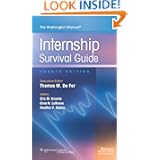- Joined
- Jan 16, 2014
- Messages
- 457
- Reaction score
- 62
I was looking for a good short, preferably picture book with common medical procedures that one must learn before starting your intern year. I don't want a 1000 page book but something short and readable. Any ideas?
